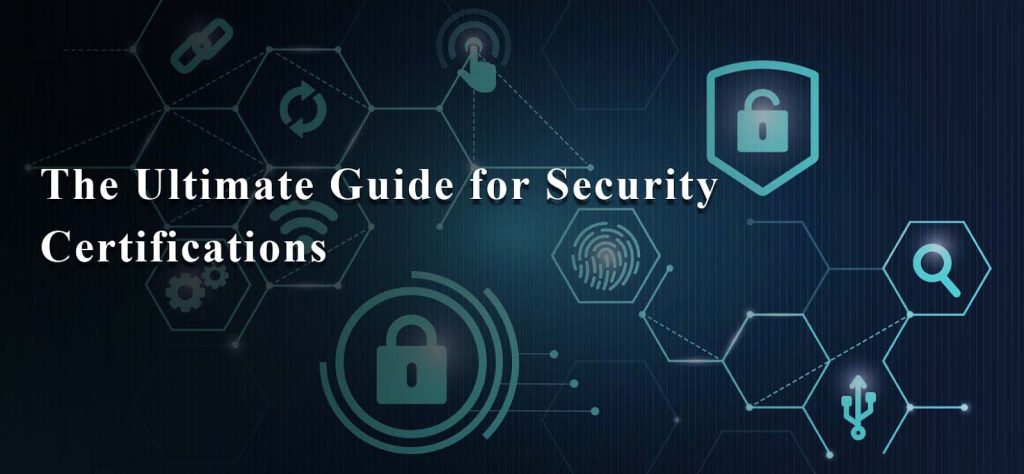The first line of defense against hackers and other cyber threats is network security certification. They can see why network security has become more important. Their given estimates that cybercrime would cause $6 trillion in global damage by 2022.
While having so many cyber security options is undoubtedly beneficial, the sheer quantity and range of options are also difficult. It’s easy to become overwhelmed by the number of options available, to the point where you don’t decide at all.
What is the definition of network security?
Most experts describe network security as rules and methods for preventing trespassing, unlawful access, alteration, misuse, change, destruction. Moreover, the unauthorized collecting and dissemination of data on network infrastructure. A mix of hardware devices, security software, and user understanding of security processes and approaches is required for the entire process.
Furthermore, employees who follow correct instructions on security measures and experts who have completed network security training are examples of the let apart.

What is the purpose of network security?
Many parts of our lives have made the transition to the digital realm. We utilize the internet to conduct financial transactions, interact with family and coworkers, enjoy ourselves, shop, and conduct research. Social security numbers, birth dates, credit histories, health histories, bank accounts, utility bills, and other personal details are all stored online.
Furthermore, hackers and fraudsters have access to all of that information and transactions. The more time we devote to the internet, the greater the chance of being hacked. Furthermore, adds to the dangerous picture by offering thieves more ways and opportunities to commit fraud. There is too much at stake in our professional and personal lives for network security online certification to be compromised.
What are the different network security types?
Cybersecurity specialists have access to many network security technologies, practices, and methodologies. A high-level summary is as follows:
Software
Anti-malware, Anti-virus, and Anti-spyware are examples of security software. These tools are offered as suites or subscriptions, and the hosting provider updates them regularly to stay on top of the current threats. These programs keep an eye on your network and thwart intruders, spyware, and viruses.
Furthermore, it’s far better to purchase a security subscription than buy a suite and install it yourself. Subscription internet services prepare users to deal only with the cybersecurity landscape’s continual changes. Each day, it seems like a new cyber danger or virus emerges, and your software won’t be able to protect you from risks it isn’t aware of. That’s why it’s best to let the subscription provider handle the heavy job.
Firewalls
If your network were a post nightclub, the firewall would be the bouncer, guarding the entrance and keeping intruders out. According to established criteria, they block unwanted users by filtering traffic. Therefore, everyone who attempts to work remotely but been barred out of their company’s core systems. It leads to a shortage of authorization, knowing how powerful a firewall can be.
Segmented networks
This method classifies and separates traffic according to predetermined parameters. Segmented networks are particularly effective for confining users to a single region, namely the one they need to complete their work. Similarly, keeping them away from material that isn’t relevant to them. Restricting users in this way helps to reduce the network’s overall weak points.
Security software for email
In any network, email is a particularly vulnerable point. Cybercriminals like sending phony emails that appear to be from respectable businesses and financial institutions. However, a single click on a link hidden in these phishing emails might damage your machine. Furthermore, email security software may filter out incoming threats and block the transmission of particular types of data.
Which network security certifications are the best?
Before you can make a lot of money in network security, you must first understand the tools and abilities. This is where network security education comes into play. Network security certification courses provide you with the necessary information for these professions. They further provide you with a valuable credential that verifies your qualifications to potential employers.
Certified network security engineer
A certified network security engineer is a thorough course that provides skilled network hacking and wireless security tips and tactics. A network security expert uses tools and procedures to protect the network infrastructure and minimize cyber-attacks.
Furthermore, a certified network security engineer program prepares students for a fulfilling career in information technology. This network security online course further covers Kali Linux, Metasploitable installation, intelligence gathering, network sniffing, wireless hacking and security, and other topics.
https://www.globaltechcouncil.org/certifications/certified-network-security-engineer/
Certified white hat hacker
Global Tech Council has created a new network security training course called certified white hat hacker. Ethical hackers are in high demand because they play a critical role in cyber security, keeping dangers at bay.
Furthermore, this specialist network security course covers everything from the fundamentals of white hat hacking elements of footprinting to high-level subjects like hacking the system malware in depth. Therefore, aspirants consider obtaining a white hat hacker network security online certification from the Global Tech Council will serve as a stepping stone in your professional development.
https://www.globaltechcouncil.org/certifications/certified-white-hat-hacker-certification/
CompTIA Security+
Cryptography, threat management, identity management, access control lists, security systems, risk identification, and mitigation are all covered by this certification. It’s aimed at those just starting in the IT field.
Therefore, qualifications you pick will determine where you are in your profession, and each person’s definitive list will be different. The final two certificates are the best suited for entry-level IT employees. At the same time, the CISSP and CISM are for more experienced security specialists.
Conclusion
Global Tech Council may assist you if all of this knowledge about network security has piqued your interest in pursuing a new profession in the sector. The CompTIA Security+ certification, network security online course certifies core, vendor-neutral IT security knowledge, and abilities. This certification program covers the key principles of network security and risk management as a standard for best practices in IT security.

